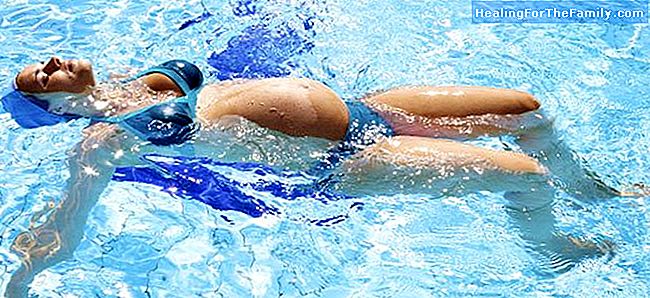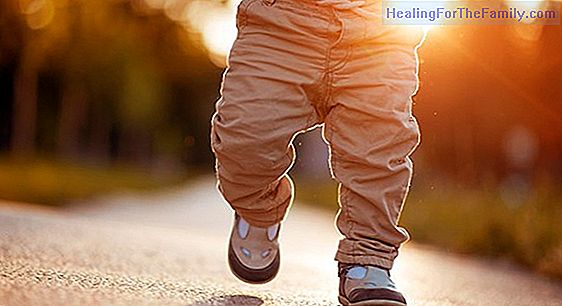Aquatic exercise in pregnancy
The aquatic exercise in pregnancy is perfect for the physical conditioning of the woman, and one of those with a lower risk. In aquagym classes or hydro gymnastics for pregnant women, exercise programs are practiced equal or very similar to aerobics classes with the difference that, in water, body w
The aquatic exercise in pregnancy is perfect for the physical conditioning of the woman, and one of those with a lower risk. In aquagym classes or hydro gymnastics for pregnant women, exercise programs are practiced equal or very similar to aerobics classes with the difference that, in water, body weight decreases by up to 90 percent. In this way, the impact on the joints and the aerobic intensity of the exercise itself is reduced, since it is a class intended for pregnant women.
The advantages of water exercise for pregnant women

Many women, especially when it is the first pregnancy, fear doing any effort or exercise where there is danger of falling or hurting the baby, and choose to stop doing any activity, and pass the sweet wait sitting on the couch.
Being pregnant is not being sick and inactivity can be very harmful for both the baby and the mother. The pregnant woman must remain active, if circumstances permit, throughout the pregnancy. Physical exercise in pregnancy will bring you many benefits, among which are pain relief from morphological changes or the usual circulatory problems and better preparation at birth, until a quick physical recovery.
Water is a perfect and safe way to condition the body. The fact that water is a weightless means, allows to make positions and movements that outside it could not be done, or if it could, they are done with greater and risk.
Some studies have shown that exercise in water reduces thermal stress, that is, maintains maternal body temperature within safe levels for the fetus. While in the water, the sensation of lightness and the decrease in pressure or overload on the joints and muscles, provides a physical and mental relief for the future mother.
The pressure of water on the body acts as a massage during pregnancy, which favors the circulation of blood. The resistance of the water helps to tone the muscles of arms, legs, back, abdominals and the lack of gravity of the water allows the realization of many free and safe movements, resulting at the time, an enjoyable and fun activity that being aerobic, avoids overweight, improves the cardiorespiratory system and endows the mother with greater resistance to effort.
All these physical benefits also favor a more positive psychological attitude, help to reduce levels of anxiety and promote rest.
Recommendations for the practice of hydro-gymnastics in pregnancy
1. As of the second trimester the risk is lower. Consult with your doctor before performing any kind of exercise.
2. Classes avoid absenteeism. It is always more fun and avoids absenteeism, doing the activity in a small group that alone and always under the supervision of a professional.
3. The periodicity must be alternate. It is better to go three times a week with a minimum rest day between sessions whose maximum duration should be 50 minutes, punctually and longer sessions.
4. Heartbeats should not exceed 150 beats per minute, but check with your doctor beforehand about your optimal threshold.
5. We must avoid exhaustion. Fatigue is harmful to the baby and it is very important to warm up gently and leave some time at the end for stretching and relaxation.
6. If during the practice you feel some discomfort, dizziness or temperature rise, you must abandon the exercise and rest. The intake of liquids, before and after exercise is essential to avoid dehydration and the appearance of cramps.
7. Avoid changes in temperature, drafts and cold. After the session it is advisable to shower and dry well to keep the body warm and avoid colds.
8. The water temperature should be between 28 and 31 degrees. This temperature makes the exercises more pleasant and helps relaxation.
9. The only requirement to practice this exercise is that you do not fear water, no it is not necessary for you to know how to swim. Different complementary elements such as flotation belts can help you maintain your balance and a straight posture. 10. Every woman is different, just like every pregnancy.
Surrounded by health and sports professionals, will provide security and tranquility to the future mother.

Marián Zamora Saborit
Physiotherapist. Pilates Technician
Psychomotorist in Early Childhood Education
Blog by Marián Zamora












